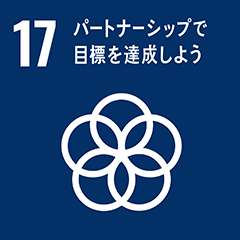Inochi Declaration
Rather than preparing solely for emergencies, transform our legal systems into “phase-free legal frameworks” by integrating disaster preparedness into ordinary-time regulations.
Among the various social challenges we face, disasters have a distinct nature. Issues such as environmental degradation, poverty, and an aging society are ever-present across different regions, thus encouraging ongoing action and generating public opinion that drives legal reform. Disasters, on the other hand, occur only occasionally and in limited regions, which causes interest and action to remain confined to a small group of individuals or communities. And yet, Japan—often referred to as a disaster-prone nation—frequently faces such regionally rare yet devastating events.
Given this, one might assume that Japanese society excels in disaster response. This is partially true. Japan performs well in infrastructure-related preparedness. Roads, rivers, and schools are built to withstand damage and are generally restored efficiently after disasters. However, Japan cannot be said to excel in supporting disaster victims. For instance, conditions in evacuation centers often fall far below international humanitarian standards, resulting in prolonged disorder.

Diagram: Structural reasons for disorganized disaster victim support — based on Sugano, 2021
In May 2025, the Act Partially Amending the Basic Act on Disaster Management and Related Legislation was enacted. This law introduced a registration system for “Disaster Victim Assistance Support Organizations,” enabling specialized civil organizations to autonomously participate in disaster response. Furthermore, in order to strengthen support for older persons and persons with disabilities, the provision of welfare services was formally integrated into the disaster response framework. Through this amendment, the government has begun addressing Challenges 1 and 2.
The reason behind Japan’s strength in infrastructure preparedness is straightforward: disaster-related infrastructure measures are largely an extension of everyday public works, such as road construction or school building projects by national and local governments. There are pre-existing legal frameworks that prompt authorities to prepare for disasters through such infrastructure development, and when a disaster strikes, these same systems are rapidly mobilized by professionals to enable recovery.
Conversely, Japan’s weakness in providing victim support stems from a completely different structural logic. In normal times, goods and services that support everyday life are primarily supplied by for-profit enterprises through the market, or by non-governmental organizations through quasi-markets supported by public funding (see diagram).
In times of disaster, however, local governments become the primary actors in support provision. For many local government employees, responding to a major disaster is a once- in-a-lifetime experience, meaning that responses are often unskilled and ineffective. This is one major reason disaster victim support in Japan remains disorganized despite the country’s frequency of disasters. Since disasters—though infrequent—impact every aspect of daily life, it is critical to involve the very organizations that supply goods and services during ordinary times in disaster preparedness and response. It is also essential that existing legal frameworks, with which people are already familiar, preemptively incorporate provisions for disaster scenarios. Doing so allows society to leverage well-practiced systems in the event of a crisis.
The concept of designing products and services for usefulness not only during normal times but also during disasters is called “phase-free.” In Japan, the Phase Free Association was established in 2018, promoting the idea of transcending the binary between normalcy and disaster. It is not enough to prepare only for emergencies—we must also embed disaster preparedness into our everyday legal systems, thereby establishing phase-free legal frameworks.
Recognizing that disaster response mechanisms are essential for building communities of mutual support, The Inochi Forum will work with diverse organizations, including private enterprises and third-sector organizations, to establish and promote phase-free systems nationwide by 2030.
[References]
・Phase Free Association
https://phasefree.or.jp
・Sugano, Taku (2021). Disaster Response Governance: Stopping the Chaos in Victim Support. Nakanishiya Publishing
[Action Platform]
Urban Development and Disaster Prevention
[SDGs]




